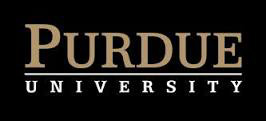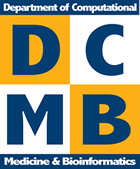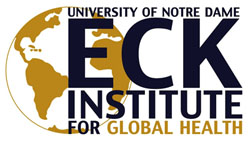Great Lakes Bioinformatics Conference 2015
WORKSHOPS
last edit: April 21, 2015
GLBIO Workshops Announced!
Please join us on May 18 for two timely and informative workshops! Bioinformatics Cores and Exploring and Refining Core Competencies for Bioinformatics
1. GLBIO 2015 BIOINFORMATICS CORES WORKSHOP
Location: 214A
Summary: The Bioinformatics Cores workshop will bring together leaders of some regional bioinformatics core facilities to present information on the formation and running of a bioinformatics ”Core Facility” including scientific and business aspects of a core. The workshop will consist of 2 phases. The first hour will be 3 short presentations by bioinformatics core leaders, who will speak about different aspects of Bioinformatics Core Facilities. (1) How to establish a core. (2) Hurdles in building a business. (3) Meeting the needs of changing technology.
Program: The speakers will address the following questions:
- How do you build a core?
- Business model, staffing, service, funding and support, etc.
- How their core operates? What skills are needed?
- How they interact with scientists & assist research?
- What are the important components to a successful bioinformatics core?
The second hour will be devoted to a Q & A session with the speakers and the audience. Some starter questions and surveys are listed below:
- Does your school have a core?
- Do they charge for service?
- How big is the core (people)?
- What kinds of service are provided?
- Cost, turnaround time?
- Do they work for only one group?
- Do they develop software tools? Or just use existing tools?
- For those without Cores, what would they like to see at their school?
- Would there be a use for a regional facility that would help other smaller schools?
Moderator:
- Michael Raymer, Wright State University
- Jyothi Thimmapuram, Purdue University
- Ashwini Bhasi, University of Michigan
- Tea Meulia, The Ohio State University
- Ricky Chan, Case Western Reserve University
2. EXPLORING AND REFINING CORE COMPETENCIES FOR BIOINFORMATICS
Location: 214A
Summary: Bioinformatics professionals work in a variety of settings, including core facilities, biological and medical research labs and software development organizations. The need for bioinformatics skills permeates academia, industry and thehealthcare sector. As the organization, analysis and interpretation of vast amounts of data become central to biomedical research, how do we define bioinformatics competency requirements for these diverse roles and how do we ensure that there is adequate training to meet their needs? The ISCB curriculum task force has drafted a set of core competencies (see http://journals.plos.org/ploscompbiol/article?id=10.1371/journal.pcbi.1003496) for three distinct types of bioinformatics professional - the user, the scientist and the engineer. In this workshop we will explore these competencies, learn how they are being used to shape training programs in different contexts, and work together to provide input into a refined and updated set of core competencies.
Program:
- Why core competencies? An overview of the ISCB curriculum guidelines (20 min)
- Cath Brooksbank, European Molecular Biology Laboratory and European Bioinformatics Institute- Lonnie Welch, Ohio University - Applying core competencies to teaching bioinformatics engineers (15 min)
- Predrag Radivojac, Indiana University - Applying core competencies to teaching bioinformatics scientists (15 min)
- Russell Schwartz, Carnegie Mellon University - Q&A (10 min)
- Breakout sessions (30 min): We will split into two groups representing the scientist and the engineer; using the competency profiles defined by the ISCB task force, we will consider (1) what level of each competency is required for the role under discussion - general awareness, working knowledge or specialist knowledge? We will also consider the evidence that we would want to gather to convince ourselves that someone had a specific competency.
- Report back from scientist breakout (10 mins)
- Report back from engineer breakout (10 mins)
- Discussion and wrap up (10 mins)
Outcomes: Participant input will be combined with input from other workshops to generate a consultation paper on bioinformatics competency, with the aim of gathering broad community input on competency requirements in bioinformatics.





